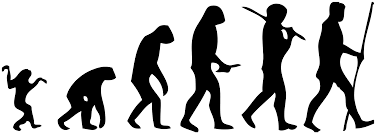Published in The Hindu on February 12, 2009

One hundred and fifty years since Charles Darwin published ‘On the Origin of Species,’ scientists seem to have a better grasp of the number of stars in our galaxy than the number of species on earth. What an irony.
As of today, the number of species identified is about 1.7 million. The global estimates of the total number of species is anywhere between 2-100 million. The best estimates are somewhere near 10 million.
Better known
Birds and mammals are better known. Yet, on an average, about three bird species are identified each year, according to the World Resources Institute (WRI), an environmental think-tank based in the U.S.
We are still identifying some mammals as well, though their numbers are not many.
We have reasonable estimates of vertebrates as well. We can take some pride in saying that about 90 per cent of plant species have been identified. That is all the good news.
Unlike the vertebrates, our knowledge of invertebrates, such as insects, is poor. Many years ago, a study of 19 trees in Panama showed how inadequate our knowledge was. About 80 per cent of the 1,200 species found in the trees were unknown species.
Tropics ignored
How sketchy our knowledge is becomes evident as most of the species identified so far belong to the temperate regions. Tropics, unlike the temperate regions, are the hotspot of biodiversity. Yet, fewer than half a million tropical species have been identified so far.
According to the United Nations Development Programme, there are probably 15-20 unnamed tropical species for every named species.
It is no wonder that discovery of many species from a single tropical location at a point of time makes news quite regularly.
The recent discovery of a dozen tree frogs in the Western Ghats is one example. More than 1,000 species were identified by WWF in the rivers and jungles of the greater Mekong region of SE Asia between 1997 and 2007.
Woefully inadequate
If our knowledge of terrestrial species is inadequate, it is bad in the case of marine organisms. Only about 2.75 lakh marine species have been identified.
Coral reefs, the biodiversity hotspots of the oceans, have not been studied. According to UNDP, coral reefs could be home to nearly a million species. Similarly, the deep ocean basins have not been studied.
Given our inadequate knowledge of species, the number of organisms that we would destroy due to climate change is anyone’s guess. “Recent extinction rates been 100 to 1,000 times faster than average,” notes an Editorial in Science. “Under further stress…all exacerbated by climate change, a further 10-fold increase is foreseen over the coming century.”